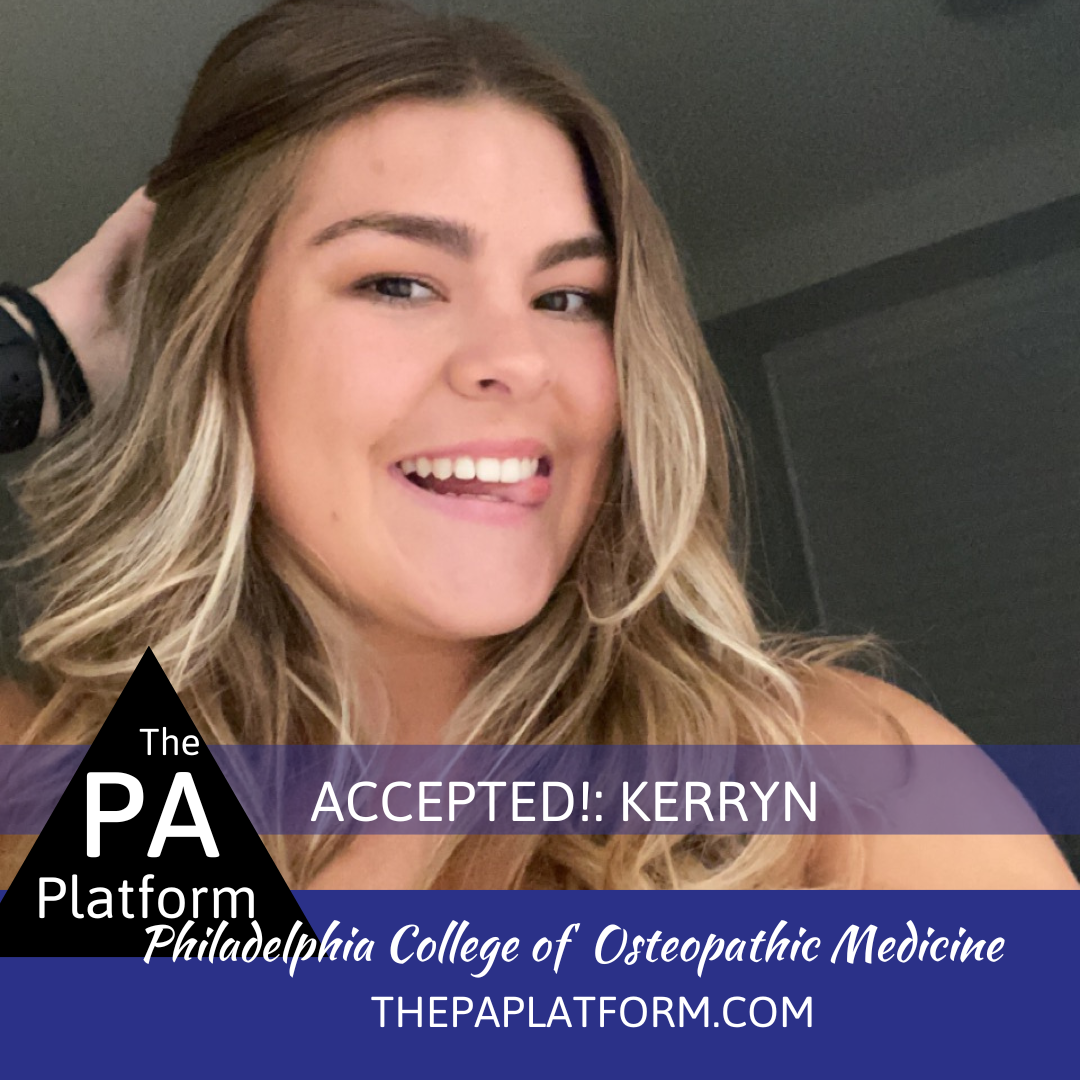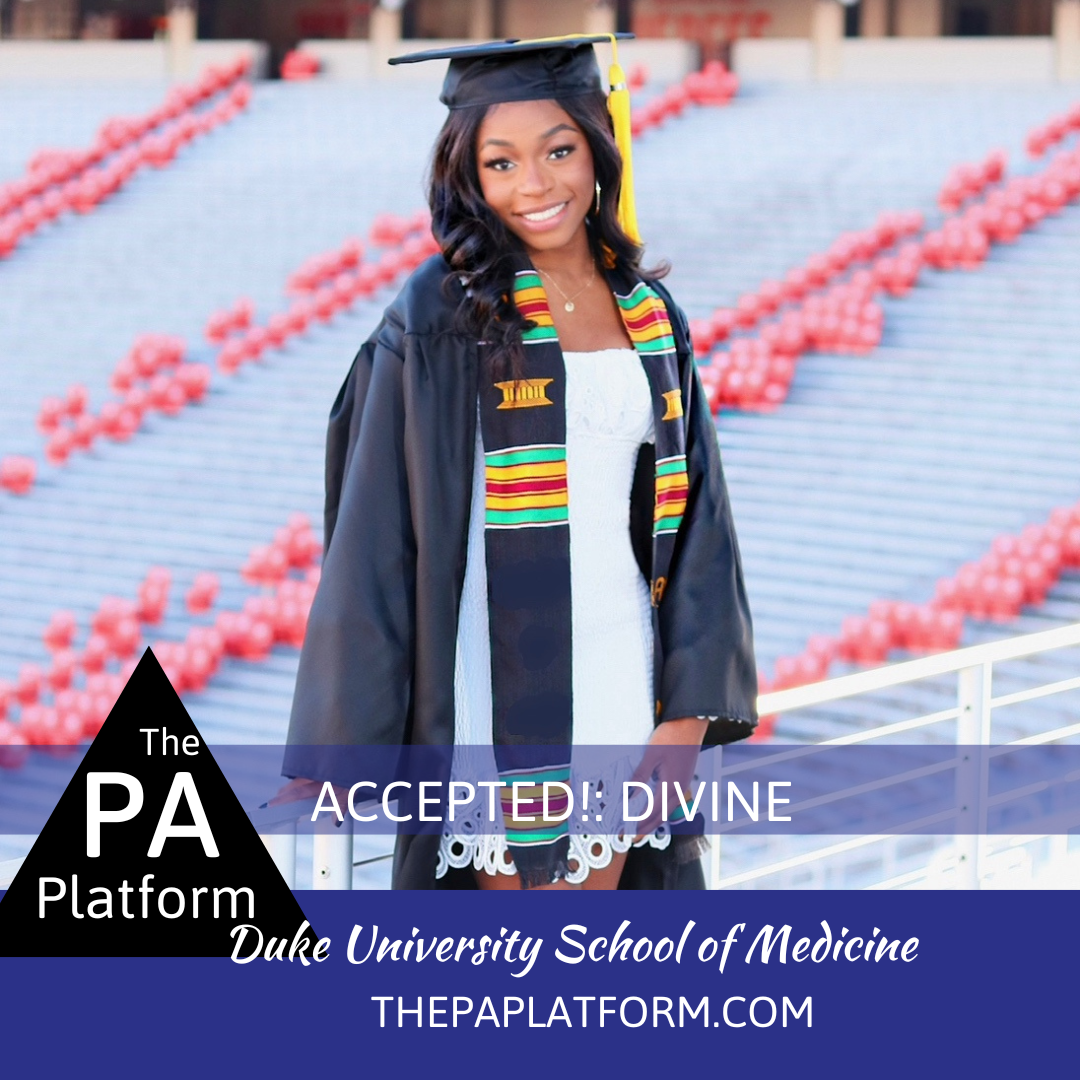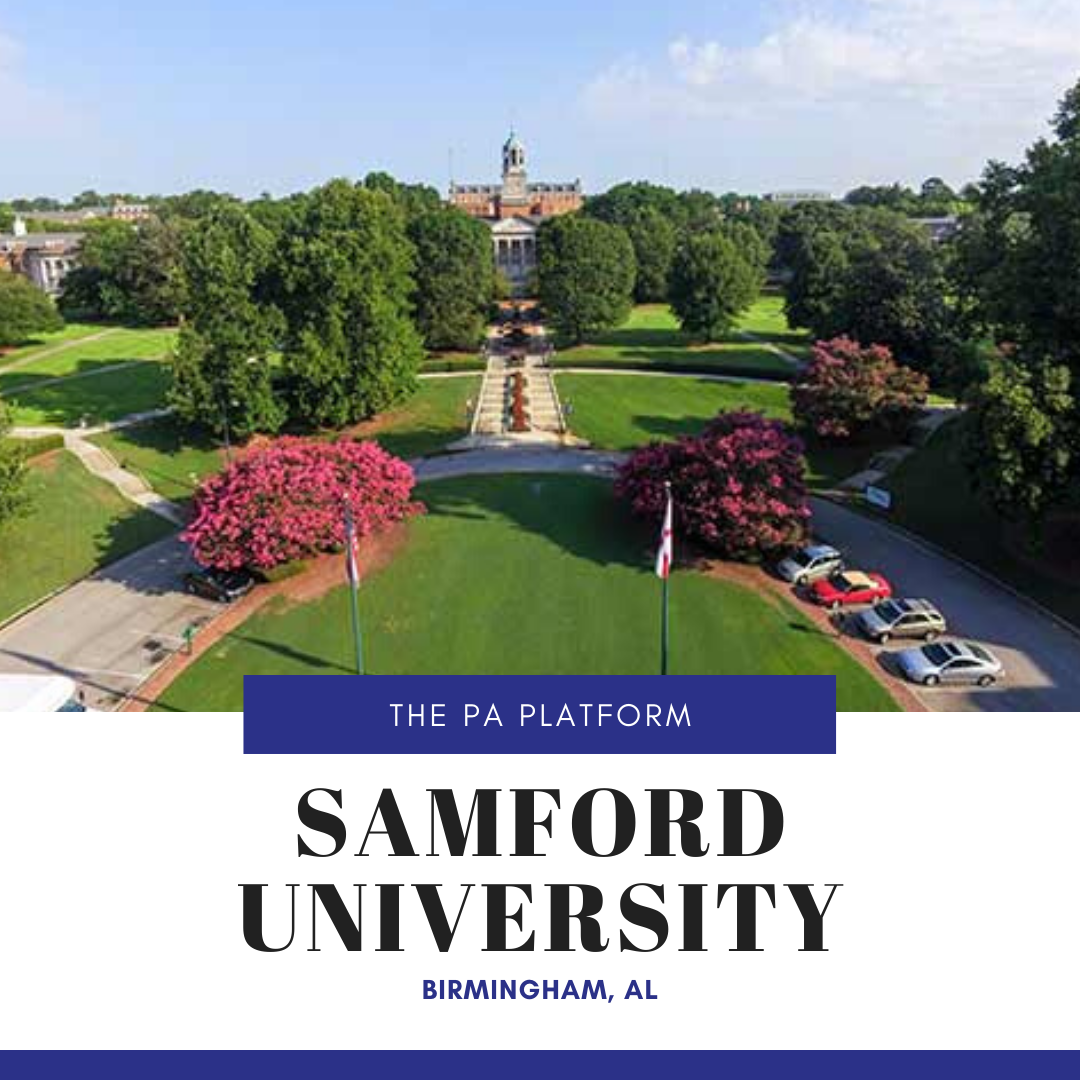It was a few months ago now that I got exactly the phone call I had been hoping to get. It came on a weekday evening, and when I saw the area code, I stepped into the bedroom to take the call privately.
“Hello Carrie!” It was the director of a program I had interviewed at. “We want to invite you to be part of our incoming class.”
I had done it. I had gotten into PA school.
During the difficult process of applying, I had met individuals from a whole range of backgrounds—from students just finishing up undergrad, to a real estate agent looking to change careers, to an MD from another country who wanted to be able to practice in the US (“I’ve delivered over 800 babies!” he told me). Even so, my own background was not one I encountered during prerequisite classes and while chatting with others at interviews: One with a background in the humanities.
“The humanities” is the academic term for non-science, technology, engineering, and math studies. It includes majors like English literature, American studies, philosophy, art history, and film studies. For me, it was foreign languages. I started taking French in eighth grade and was immediately captivated. I added Spanish in high school.
I knew I wanted to teach foreign languages. I graduated with a Bachelor’s of Arts and got a job right away as a French and Spanish teacher for a junior high and high school. I started my master’s the next year.
I had also, since I was little, always been interested in medicine. And by the time I got into my seventh year of teaching, there were multiple factors in my life (that I won’t go into here) that made me start seriously considering PA school. I was teaching at a small charter school at the time. At the end of the school year, when the principal sat me down and told me was no budget for me to teach there the following year, it clenched the decision.
What followed was a process I’m sure you’re all familiar with: a schedule of volunteering and shadowing, and lots and lots of studying. By the time I started working on my CASPA application, I was realizing there were a lot of competitive applicants out there who had backgrounds and experiences that I just couldn’t bring to the table. Why would anyone accept me to their PA program when the other applicants were respiratory therapists and EMTs and biology majors who spent the last five years working as a medical assistant? I wouldn’t choose me for a program.
But then I started to realize: Maybe I didn’t have a science degree, but I had already successfully completed a master’s degree and knew how to succeed academically. I hadn’t worked with a lot of patients, but as a public-school teacher, I was responsible for doing my best to care for all the students—of all types, backgrounds, and needs—who came to me. I started to realize: No, I didn’t have a traditional background for a PA school applicant, but I had unique experiences and traits that could help me become a good PA—and that other applicants didn’t have.
I began to focus not on what I didn’t have because of my non-traditional background, but on the strengths I could bring to the table. And coming from a humanities background really did give me some strengths! That’s what I wanted to share with any other humanities majors out there who are working on applying to PA school: That you might not have the same experiences as other applicants, but that your background is also great preparation for PA school.
Strengths humanities majors bring to the table when applying for PA school
1. You stick out
I taught school for seven years. I can tell you from experience that when I had 200+ students, I did not remember every name, face, and story that went with it, even though I wanted to. But there were always memorable students who stuck out—and not always for the reasons you might think. Yes, the enthusiastic, high-scoring Hermione Granger clone was one. But so was the goofball who made me laugh…and so was the troublemaker. Really, it didn’t matter what it was. I remembered the students who were distinctive.
If you start looking at the stats pages of different PA programs, you’ll start seeing that it’s normal for them to have 1,000+ applicants for maybe fifty spots. And I can tell you from experience: The faculty simply cannot keep every applicant straight in their minds. What does this mean? It means it’s a huge strength to stand out. Being the one Spanish Teaching major in a sea of biology degrees does that, and I think your degree in humanities will, too.
2. You’ve been trained to think critically
When I decided to apply to PA school, I needed all the prerequisite courses. My first was biology. I studied hard; the topics covered seemed oddly detailed and specific to me, though—who could possibly remember every step of the Kreb’s Cycle? Instead of focusing on those details, I studied the way I had while working on my bachelor’s and master’s degrees: I looked for patterns and common themes, and studied long enough that I had a general overview of the material. I went into the first exam feeling confident.
When we got our exams back, I saw I had scored just above failing.
Immediately, I started studying differently. I realized that yes, I was supposed to memorize the steps of the Kreb’s Cycle, and one of the biggest changes I made to my new studying technique was that I started focusing more on memorization (so many flashcards!). I earned a C+ in that class, but after, I’m proud to say, adjusting how I studied got me an A or A- in all my other prerequisites classes.
I tell this story for two reasons. First, to illustrate that a background in the humanities might mean you’re going to have to figure out a different way of studying—but at the same time, that you’re completely capable of doing so. The second reason, though, is to highlight what a humanities education emphasizes, namely: to think critically.
My BA and MA didn’t teach me to memorize facts. Instead, like how I approached that biology class, they taught me to assemble information, to look for patterns, and to draw conclusions. Those classes taught me to think critically: Why is this like it is? How does it work? What conclusions about this information can I now apply to other areas?
Even if this isn’t always how you need to study while working on becoming a PA, it’s something that will serve you well. I’m pretty sure the better clinician would be not the one who can regurgitate memorized facts, but the one who can analyze the facts and connect the dots. And that’s what a humanities education does so well in teaching you how to do: to think critically.
3. You can write
So much of my time as a humanities student was spent writing. As an undergrad, I was assigned to write a personal narrative, and wrote about a service trip to Mexico my family had taken. In one of my first teaching classes, the professor had us practice writing clear, concise directions for worksheets. As a graduate student, I had to write a long paper analyzing the use of proper nouns in a piece of Mexican literature.
These assignments were part of what helped me learn critical thinking. There was another outcome from writing, though: I learned how to write. On the PA Platform, we often hear Savanna explain that your personal statement gets you yourinterview, and your interview gets you accepted. As a humanities major, you’ve had excellent preparation to write a solid personal statement that will help you do just that. It can’t hurt later, either, when you need to write clear patient notes.




































